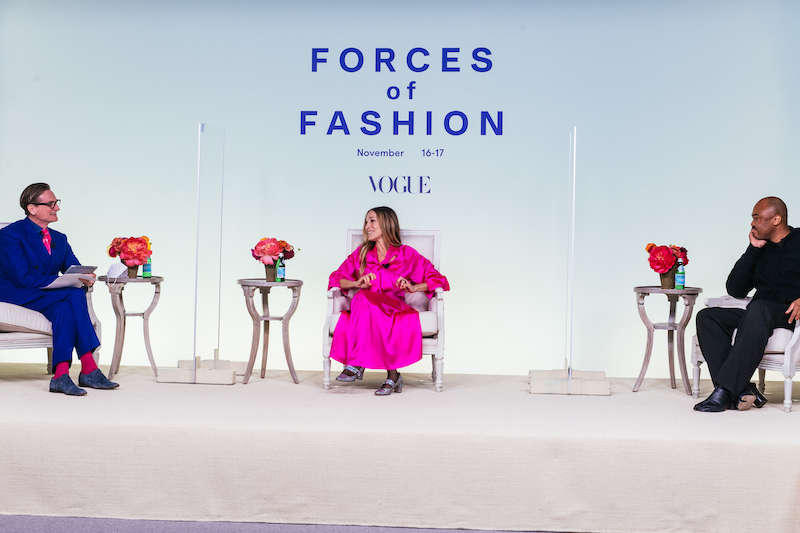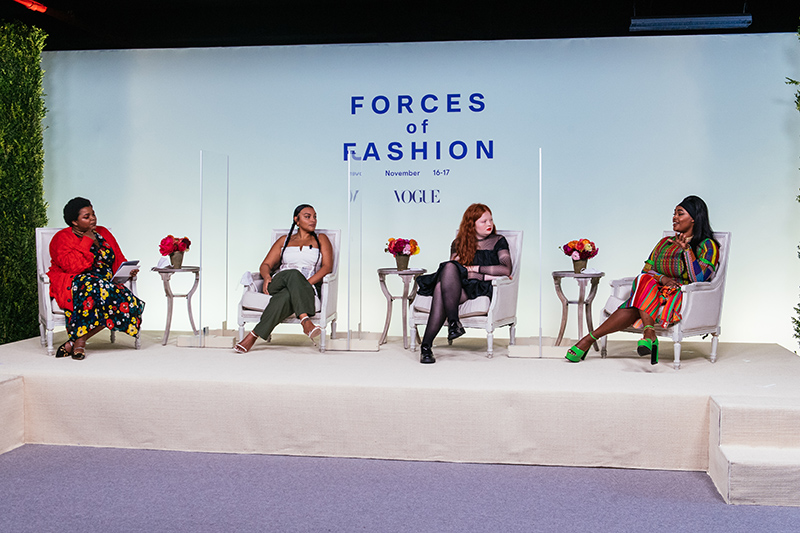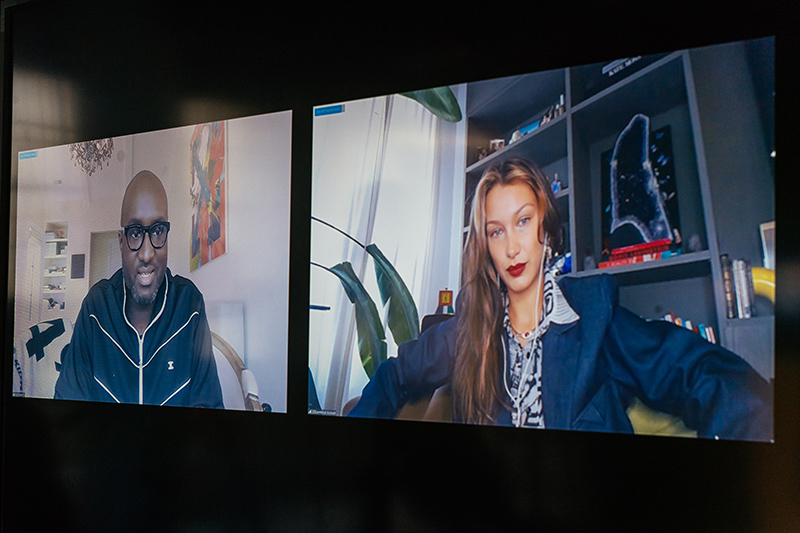The fourth instalment of Vogue’s Forces of Fashion Summit took place phygitally for the first time last night, bringing together the industry’s most directional voices and talents. This year’s iteration focuses on the transformative potential of fashion, across subjects on sustainability, inclusivity and creativity.
The two-day virtual summit was kicked off by Anna Wintour, whose opening remarks spoke to the uncertainty yet cautious optimism that has defined much of this year. Day one started on a high note with an impressive lineup of speakers spanning all facets of the industry: Paloma Elsesser, Sarah Burton, Bella Hadid in conversation with Virgil Abloh, Jonathan Anderson, Sarah Jessica Parker, Christopher John Rogers, Lizzo and Jeremy Scott.
Serving as a much-needed check-in on the state of our industry, this year’s iteration feels more necessary than ever as we collectively grapple with questions on where we’re headed, and what truly matters to us. Below, the key highlights from the first day of Vogue’s Forces of Fashion 2020.
On post-pandemic creativity

COVID-19 has universally thrown a spanner in the works, leaving almost no industry unscathed this year. But the recurrent topic that steered the night (daytime in New York and London) was creativity. Alexander McQueen’s Sarah Burton chatted with Vogue’s Sarah Mower live from McQueen’s London flagship store, which also houses a free exhibition space open to all. “Anybody can come. Schoolchildren come, teenagers come, grandparents come,” Burton told Mower. “It’s really a space for everybody to see how we put the collection together.” An ode to the creative process, the conversation was a resonant reminder that creativity can only thrive in challenging times.
“One of the positive things was slowing down,” said Christopher John Rogers in a panel with Sarah Jessica Parker and Vogue’s Hamish Bowles. “There was nothing to do but relax and take stock of the situation. It made me think about who I am as a designer, what makes me happy, and what I want to put out in the world.”
Also ruminating on the pertinent subject of conscious creativity was a panel moderated by Vogue Runway‘s Nicole Phelps, between The Costume Institute’s Curator In Charge, Andrew Bolton, Louis Vuitton’s Nicolas Ghesquière. Hot off the heels of The Met’s postponed but recently opened blockbuster fashion exhibition, ‘About Time: Fashion and Duration‘, Bolton reflected on the prescience of the exhibition’s timeliness in a COVID context, particularly noting fashion’s relationship with time, endurance and obsolescence. As he aptly puts, “fashion isn’t about repeating itself. It’s about re-inventing and re-contextualising itself.” Ghesquière, too, reflected on his own tenure at Vuitton—one that has long harnessed the very impact of time on fashion.
On body positivity and diversity

As fashion continues to discard its antiquated beauty standards, we’ve seen the rise of a new guard of models and entertainers who put advocacy and body positivity at the heart of what they do. Hearing from Lizzo, Paloma Elsesser, Precious Lee, Tess McMillan and Jill Kortleve, each of them spoke to the importance of challenging fashion’s status quo.
“As a big girl, fashion wasn’t available for my body type, so I had to get creative,” Lizzo told Jeremy Scott. “If it wasn’t made for me, I made it for me—we have that in common.”
“We have to acknowledge the fact that there was a time, not long ago, where this entire panel wouldn’t exist,” said Vogue contributor Gabrielle Karefa-Johnson in her panel with Elsesser, Lee, McMillan and Kortleve. “We should be speaking and thinking critically about the industry that we’re in. We have so far to go, but this is a phenomenal start.”
On culture, collaboration and community

Jonathan Anderson, in conversation with Reggie Yates, shared his perspective as a designer who places interdisciplinary collaboration at the forefront of the two brands at his helm: Loewe and the eponymous JW Anderson. “I don’t work for a fashion brand, I work for a cultural brand,” he tells Yates.
On the front of brand-building, Virgil Abloh and Bella Hadid were joined by Vogue’s Creative Editorial Director, Mark Guiducci to deep dive into the power of lifting each other up. Abloh and Hadid were well-placed to share their perspectives: Hadid most recently harnessed her following of 35.4 million on Instagram to advocate for voter registration at the US elections; while Abloh has launched a scholarship fund and an online database that teaches young creatives how to start a brand.
Burton also reiterated the spirit of community at McQueen. “There’s no hierarchy of ideas. It’s a really collaborative process,” she told Mower. “Each kneeler [in Cornwall] was embroidered by a different person. You could almost feel the sense of community in the room, and this sense of people coming together.”





